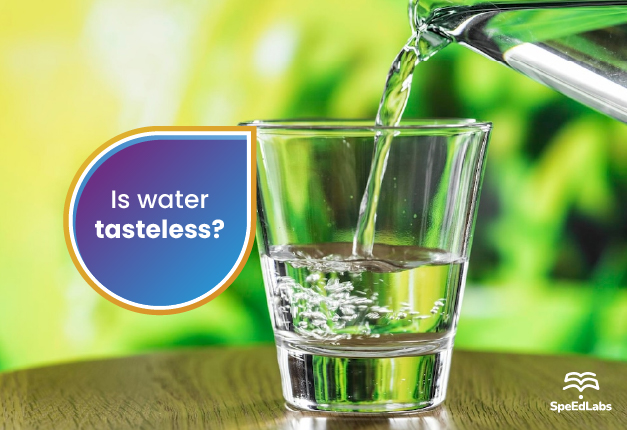Water is tasteless, that is what we have learnt for such a long time and that is what the philosophers have claimed for thousands of years. They described it as a starting point and null condition for the perception of taste. “What water is to tongues, darkness is to eyes, and silence is to ears,” Aristotle stated. “Water as a natural material tends to be tasteless,” he stated. However, scientists later discovered that a sip of pure distilled water might have a distinct flavour.
What can influence the taste of Water?
- Take a sip of water after putting something acidic on your tongue, and it may taste slightly sweet. It may taste bitter if you drink it after eating salt.
- After washing away the taste with water, the cells revert to an active state. When viewed against a white sheet of paper, it appears to be an after-image of a colour. You do not even need to eat or drink anything to achieve the same effect. Water can be enhanced by a person’s saliva. As you go about your day, your tongue will be awash in slightly salty spit. Your mouth has lost its flavour because of becoming accustomed to saliva. If you rinse the spit away with water, your cells will return to a bitter or sour flavour with your next sip.
- Taste is a highly subjective sense, and most of us can tell whether drinking water tastes good. One of the most important factors influencing taste is the mineral content of water. The simplest way to see how minerals affect the taste of water is to compare the flavour of distilled water to that of conventional tap water or mineral water. Because dissolved solids have been removed from distilled water, most people find it bland or flat. This is particularly true when compared to mineral-rich water.
- The amount of total dissolved solids (TDS) in a water sample is sometimes used to represent the mineral content of your water. A higher TDS indicates that your water contains more minerals, whereas a lower TDS indicates that your water contains fewer minerals.
Contaminants in Water
Minerals are not the only thing that influences the flavour of your water. Some of the additional contaminants in your water that may affect the flavour, as well as how to improve the taste of your water if these contaminants are present, are as follows:
Disinfectants
To remove disinfectants and their byproducts from your water, you will need to use a filtration system that includes activated carbon. Disinfectants, their metabolites, and a variety of other compounds are very well captured by activated carbon.
Hydrogen sulphide
Although the Environmental Protection Agency does not consider hydrogen sulphide to be a major or secondary pollution, it may have certain negative consequences in addition to the terrible odour and taste. If your water has a sulphur or rotten egg odour, an activated carbon filter system is the most effective remedy.
Sodium and chlorides
It is a good idea to notify your water supplier if your tap water suddenly becomes salty, as this could indicate the presence of unwanted chemicals in your water supply. If your water is always slightly salty, you will want to use a reverse-osmosis (RO) system. A membrane is used in RO systems to filter out microscopic pollutants such as chloride and sodium.
A water test performed by a water professional is the most effective way to determine what is in your water. A water test can reveal which impurities are affecting your water’s flavour, and skilled experts can explain the various filtration systems available to provide clean, filtered drinking water that is crisp and pleasant.
WATER types and sources
The type of water you drink can also affect the taste. Here are a few examples of the most common types:
- Tap water is usually delivered directly to your home or building from a municipal water supply. Fluoride is frequently used to protect tooth enamel, which can affect taste. The type of pipe (such as copper) and its age can also affect the taste.
- Spring water is obtained from a natural freshwater spring, which is typically located in a mountainous region with a lot of clean runoff from snow or rain. Minerals gathered as water flows down mountains and across soil can have an impact on flavour.
- Well water comes from deep underground aquifers. Although it is typically filtered, the high concentration of soil minerals can still have an impact on how it tastes.
- Nowadays, sparkling water comes in a variety of shapes and sizes, but it is typically just mineral water that has been carbonated with added carbon dioxide (CO2). The mineral content, as well as the fizzy sensation of carbonation and its high acidity, all have an impact on its taste. Many include additional flavourings or juice.
- Alkaline water contains naturally occurring, ionised minerals that raise its pH, making it less acidic and imparting a “smoother” taste. Many alkaline waters occur naturally near mineral-rich volcanoes or springs, but they can also be alkalinized artificially.
- Distilled water is created by distilling the steam from boiled water, which removes any minerals, chemicals, or bacteria.
Therefore, now we know that the taste of water can be affected by so many factors.
Also published on Medium.
